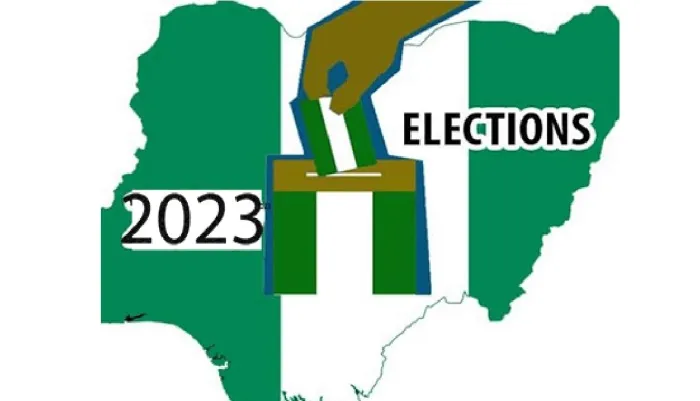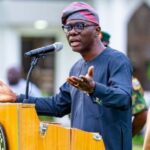The moment Nigerians and members of the international community have been waiting for, with bated breath, has arrived: the conduct of the 2023 General Elections. The elections are coming at a defining moment. They are holding at a time when the country is at its nadir or keeping the rear in almost every department.
In the small hours of Saturday, 25th February, 2023, not less than 1.4 million election staff of the Independent National Electoral Commission (INEC) shall fan out of 8,809 Wards/Registration Area Centres, to the 176,846 Polling Units (PUs) across the country. This is one of the largest deployments of men and materials in peace time. The massiveness of this operation is best appreciated against the fact that the number deployed is more than that which would have been used to conduct elections in the entirety of the Economic Community of West African States (ECOWAS), with the exception of Nigeria.
After setting up the PU between 8.00am to 8.30am and pasting relevant electoral information such as the list of registered voters, the Presiding Officer shall explain the accreditation and voting procedures to all present. He/she shall declare the PU open for accreditation and voting. The voter shall present his/her Permanent Voter Card (PVC). Thereafter, the voter shall be verified and authenticated, using the Bimodal Voter Accreditation System (BVAS) device. A voter who has been verified and authenticated shall be accredited and issued with a ballot paper. He/she proceeds to a cubicle, without a recording device or Android phone. He indicates the candidate/party of his choice in secrecy. He folds the ballot paper and proceeds to insert it in the appropriate box in the full glare of other voters, party agents, observers, journalists, INEC monitors and the poll officials.
After voting, a voter can elect to remain, so long as he does so peacefully and he/she does not disrupt the process. After every voter on the queue has voted, the Presiding Officer shall declare the voting closed. The ballots shall be sorted out according to the parties/candidates contesting by the poll officials. They shall then be counted in the full glare of voters and party agents. The results shall be inputted into the result sheets, the Form EC8A and the Form 60E. A tear-off of each result sheet, whose original copy shall be signed by the poll official and party agents, shall be given to each of the agents and the security agents, usually the police, who are the lead security agency, for their record. The Form EC8A shall be-scanned using the BVAS device. The list of accredited voters shall also be scanned. Both shall be transmitted electronically to the commission. The Form 60E, known as the Poster Form, on account of its size, shall be pasted at the PU for all to view. The Form EC8A and the list of accredited voters shall further be uploaded on the INEC Results Viewing Portal (IReV). Interested Nigerians can log onto this portal and view, real time, the outcome of the elections at each of the PUs across the country. By putting together all these results, one can determine the votes scored by each candidate.
Outspan renews MoU with Kano dairy farmers
Merchants of Fake News Have Failed – Buni
In addition to the electronic transmission at the PU, the results shall go through rigorous manual collation at the ward, local government and state levels (for the presidential election). What is key is that all the candidates shall be represented by their agents up to the presidential collation stage. The notion is to maintain a paper trail and to ensure that all the results collated (at the various stages) bear fidelity to the ones transmitted. The fact that the results are transmitted and collated in the full glare of eagle-eyed agents, observers and journalists confers integrity and transparency to the process.
At the level of the commission, the conduct of the elections shall be monitored through its Situation Room and Collation Centre. Apart from the army of staff deployed to conduct the elections, thousands of supervisors will be deployed at the ward, local government and state levels. The remit of these supervisors is to report and escalate, timeously, any untoward event(s) to the Situation Room for further and immediate remedy. The supervisors also serve as monitors. And in their capacity as monitors, they can intervene and correct the process if there are lapses or challenges. In addition to the supervisors, there are not less than 1,000 Registration Area Technical Support Staff (RATECHS), whose duty is to troubleshoot any glitches that might arise in the use of the BVAS devices.
On Election Day, the Situation Room and the Collation Centre are commanded by the INEC chairman, who is assisted by national commissioners, directors and technical staff. Reports in the field are received and attended to through the commission’s Election Monitoring and Support Centre (EMSC), Electoral Operations Support Centre (EOSC) and the INEC Citizens Contact Centre (ICCC). The commission’s social media handles (Website: www.inecnigeria.org; Twitter: @inecnigeria; Facebook: www.facebook.com/inecnigeria) and telephone lines (070-CALL-INEC(0700-2255-4632, etc) are open to Nigerians to send in complaints, which are then responded to, real time, by a team of dedicated and ICT-savvy staff.
Nigerians must note that for the presidential election, the INEC chairman is, by law, the Returning Officer, by virtue of his exalted position as the Chief Electoral Commissioner of the Federation. In this capacity, he shall be assisted by a number of national commissioners and other technical staff, who input the results as they are forwarded and presented from the states by the respective Returning Officers. The results of other elections shall be returned by INEC officials at their respective constituencies.
It should be noted that for a candidate to be declared winner, he/she must meet two salient benchmarks: He/she must win the highest votes cast in the election. In addition, he/she must win at least 25 per cent of the votes in not less than two thirds of the states of the federation and the Federal Capital Territory. In other words, the winner must win handily and his/her victory must have national spread. By the same token, for a candidate to emerge victorious in a governorship race, he/she must score the highest votes in such an election and win at least 25 per cent of the votes in two-thirds of the local government areas of the state.
The Electoral Act 2022 frowns at certain conduct or (mis)behaviour on Election Day. Such behaviours are captured succinctly in Sections 126-128 of the Act. They also prescribe sanctions.
I believe that if each stakeholder plays his/her role by the book and the Election Management Body (EMB), INEC, carries itself according to its own regulations and guidelines, the 2023 General Elections will be superlative and further raise the bar. This is borne by the fact that each time stakeholders work professionally, with commitment and in concert, we always record huge successes.
Dazang is a former Director at the INEC

 Join Daily Trust WhatsApp Community For Quick Access To News and Happenings Around You.
Join Daily Trust WhatsApp Community For Quick Access To News and Happenings Around You.

